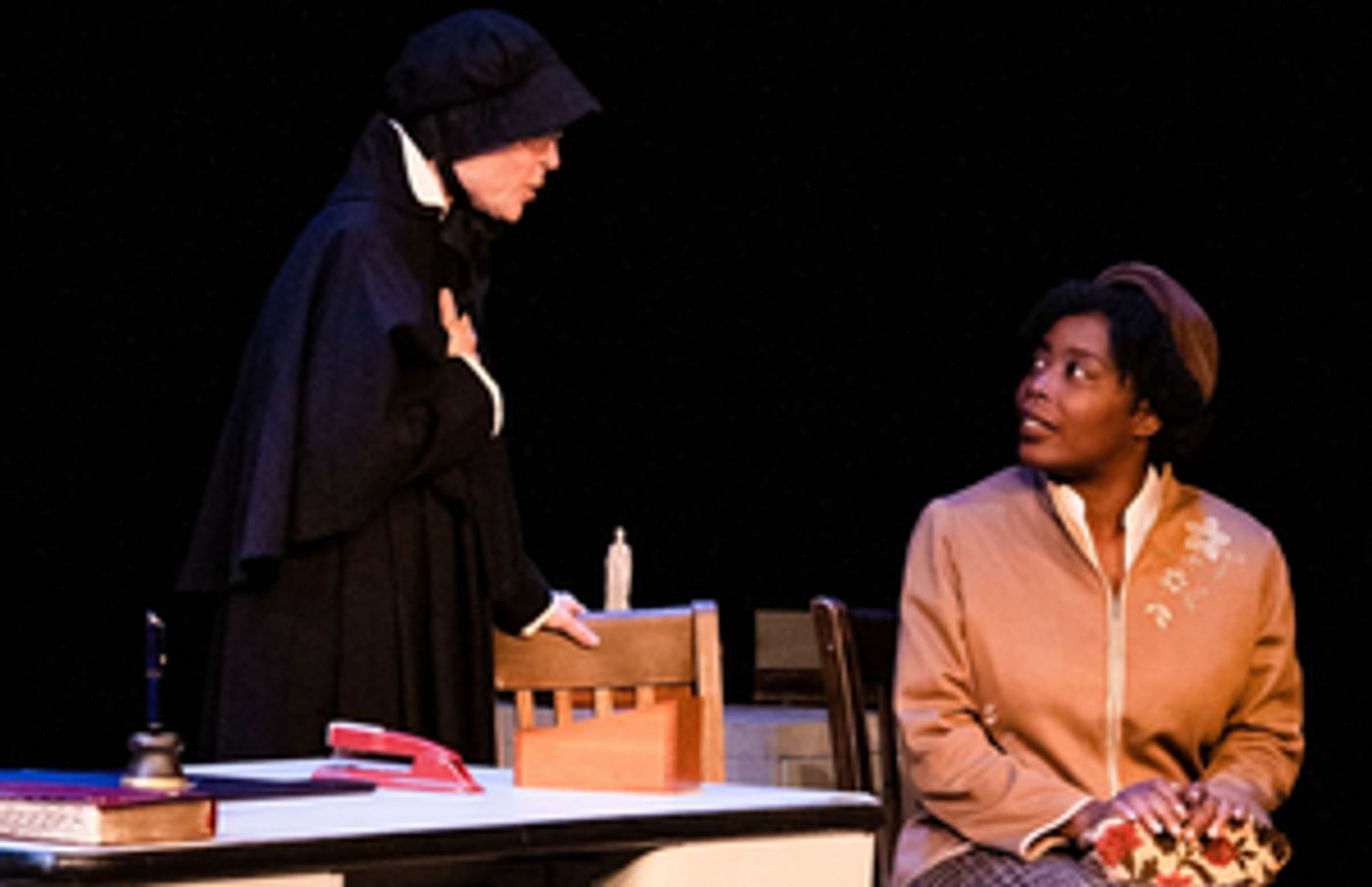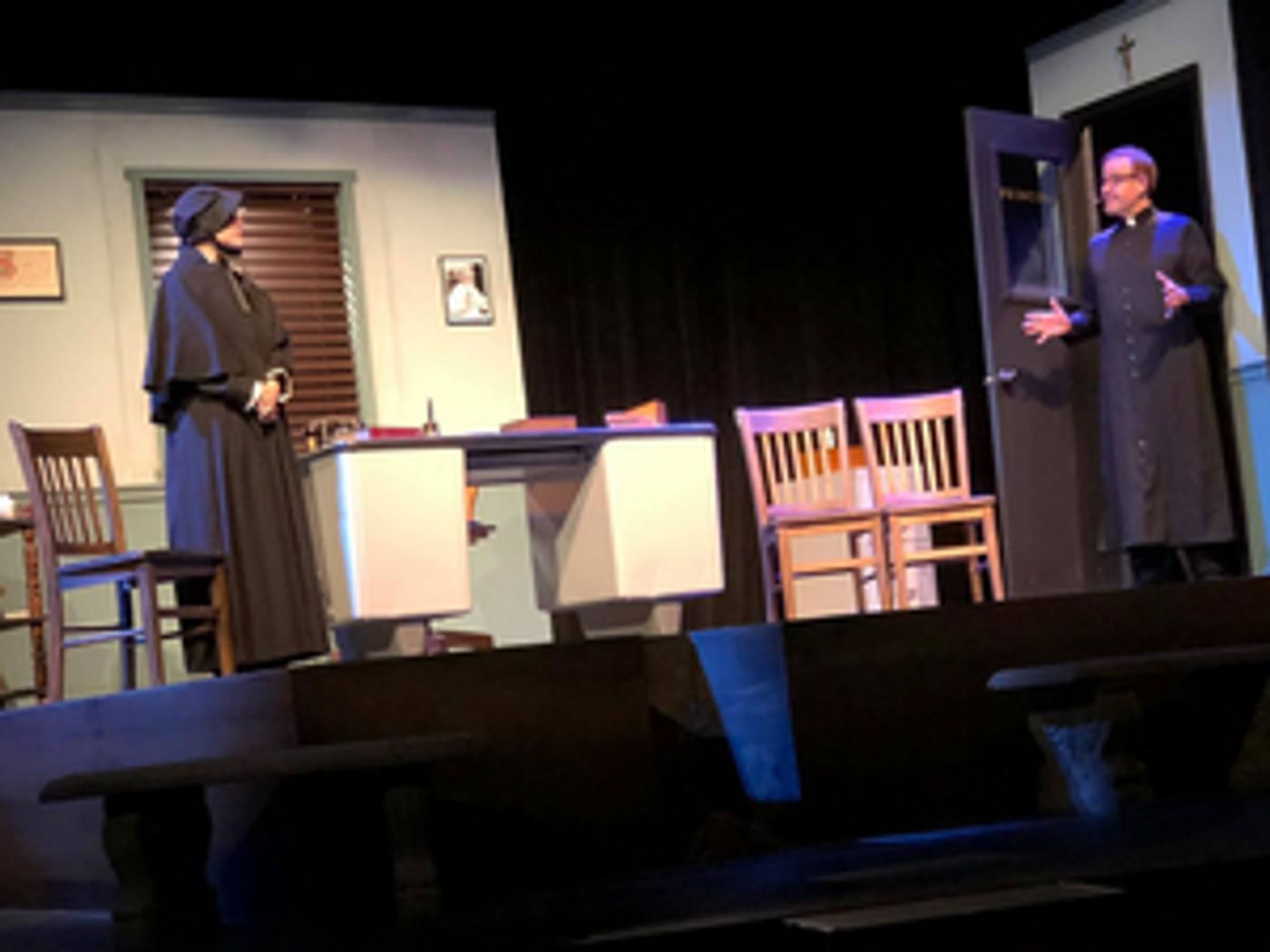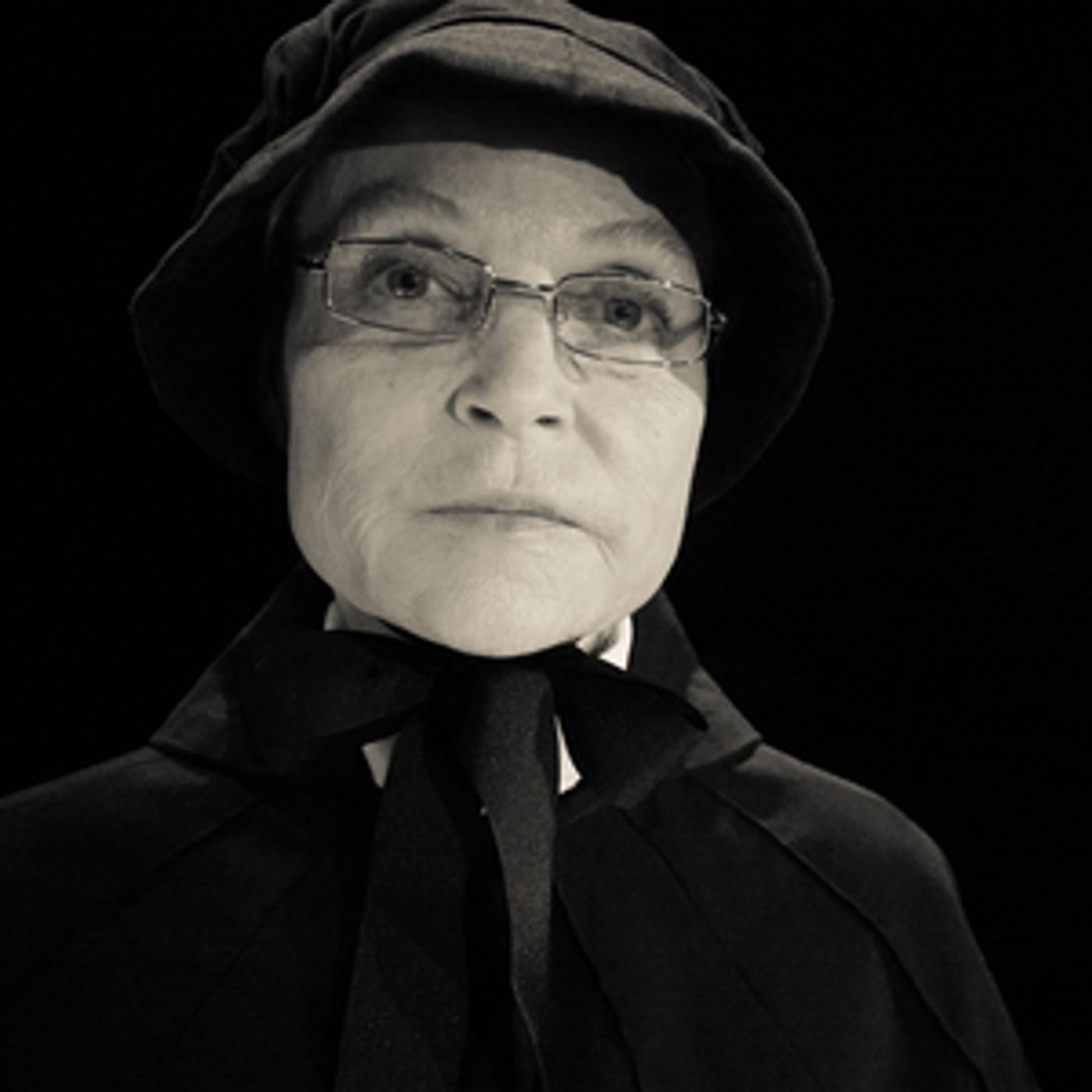Review: Jobsite Theater's Production of John Patrick Shanley's DOUBT: A PARABLE at the Jaeb Is Worth the Wait
The show is a feast for these phenomenal actors!



"We demand rigidly defined areas of doubt and uncertainty!" --Douglas Adams, The Hitchhiker's Guide to the Galaxy
"Doubt can be a bond as powerful and sustaining as certainty." --Father Flynn in DOUBT: A PARABLE
On March 13th of last year, I was all set to see Jobsite Theater's production of John Patrick Shanley's Pulitzer and Tony Award-winning masterpiece, DOUBT: A PARABLE. Then the unthinkable occurred. The world shut down due to the pandemic. Our beloved theaters, both local and on Broadway, closed. It seems like a century ago, but it's only been ten months. I've seen a couple of live shows since then, but it seems surreal, like we were in the middle of a fevered nightmare of a noir world without live theater (streaming is not the same thing). Imagine my joy when, after a ten-month hibernation, DOUBT: A PARABLE finally opened. I wasn't going to let anything get in my way of seeing it this time.
When I arrived at the Jaeb Theater on Friday evening, the kindly Straz Center staff led me through the procedures of an online health screening (easy to do) and temperature check. Everyone wore masks, and the tables and chairs were all strategically distanced. There was even a bottle of hand sanitizer on each table. We felt incredibly safe so that we could watch the production without worry.
I glanced at the online program on the Straz app on my phone and then, seeing that it was showtime, I turned it off. I love that moment, the moment you turn off your phone right before a show, ready as an audience member to give yourself wholly to the Gods of Theatre. The lights went down, and four of the finest actors in our area soon appeared onstage...and I was back. Back to the world of the living, back to the thing I love most: live theater.
It was worth the wait.
DOUBT: A PARABLE does what its title suggests....it makes us doubt. The story is set in 1964, the last innocent year (according to the title of Jon Margolis' book on that iconic time). John F. Kennedy, our first Catholic President, has recently been assassinated, and the world is changing. Progress seems inevitable, both in society and in the church, but Sister Aloysius wants none of it. As Principal of St. Nicholas Catholic Church and School in the Bronx, she wants everything in its right place, perfect, unchanged. She cannot stand progress, exemplified by the caring, tender, gregarious Father Flynn. But Sister Aloysius is a rock of unwavering certainty, and she thinks that this particular priest is the worst thing to happen to her school. She doesn't like him or the way he does things--such as adding "Frosty the Snowman" to the Christmas pageant, taking three lumps of sugar in his tea, or the simple act of using a ballpoint pen. And she suspects, with much certitude, that this nice priest may have "had his way" with a 12-year-old boy, who also happens to be the first black student to attend St. Nicholas. What's the real story, who is right or wrong, and who survives by certainty and who falls by doubt?
I don't always agree with the Pulitzer Prize committee (such as State of the Union winning over The Glass Menagerie in 1946, come on), but when it comes to John Patrick Shanley's DOUBT: A PARABLE, I am so glad they gave it its due. There is no doubt that it is one of the best-written plays of this century.
The Jobsite Theater cast is one of the strongest in years. Leading the pack is Roxanne Fay as the icy, steely Sister Aloysius. Nothing is right in her worldview. There's a moment when she's caring for a plant, and she ties a rope around it, and that's the way she treats life: Constricting it in order to mold it--and anyone in her environs--into compliance. She's more than just rigid; she's a monster of sorts. Harrowing. She grits her teeth, a la Clint Eastwood, and she spits out her words--her orders. She is an executioner of hope, snuffing out any enthusiasm or free thought. Ms. Fay may not be large in stature, but she's a giantess on that stage, Grendel's mother in black. She's frightening as hell, and I couldn't take my eyes off her.
At the end we finally get a brief glimpse of the turmoil beneath Sister Aloysius' fight for order, and she expresses true pain when deep down she feels some doubt. We're left to wonder what she is doubtful of: doubt about Father Flynn, or doubt about God Himself? It's where the show leaves us, and we venture out of the Jaeb having the same doubts. Sister Aloysius, like some modern-day politicians and voters, selects whatever theory or supposition she may have over any actual truths. Her unwavering intuition matters more than any reality. She chooses not to believe facts, not if they do not fit her narrative. This is where DOUBT: A PARABLE really hits home in the age of QAnon and Newsmax. The play may be set in 1964, and Shanley wrote it nearly two decades ago, but it's still as fresh, still as timely (dare I say, maybe even more so).
As Sister Aloysius' soundboard, Sister James, the brilliant Emily Belvo is perky and naïve, scared and intimidated. You can feel her timidity in the face of Sister Aloysius, total fear. But there's an innocence to Sister James, a sweetness. She's the type of teacher that we wish we had-someone who cares so much for her students' well-being and has a cheerleader-like love for history and teaching. But Sister Aloysius tries to quell that enthusiasm, any of her positive energy. When Sister James finally goes off on her principal, speaking up for the first time, it's a liberating moment that we want to applaud.
The great thing about Ms. Belvo is that she never overplays her hand. She always reacts in the moment. It's not easy playing a reactive character, but Ms. Belvo more than holds her own. She and Ms. Fay make a great team.
David Jenkins as the Bronx priest, Father Flynn, has never been better. His sermons are like arias, beautifully written by Shanley and marvelously performed by Jenkins. Father Flynn is so likable, but there is also an arrogance about him. He is not a saint. Yes, we feel Sister Aloysius' revulsion when he sits in her office chair, but by putting his feet on her desk, so relaxed with his position in life (a position that will soon change and come tumbling down), he pushes his comfort level-and his lack of reading a room-to its limit. That entire scene plays out so beautifully uncomfortable. What starts as a debate about a Christmas pageant (and really about the church becoming modernized) soon topples into accusations of molestation. And Jenkins pulls this off stunningly. When he raises his voice in opposition to Sister Aloysius, I held my breath, taken aback. And later on, when he realizes he's been checkmated, we feel for him, the life drained from his face. And yet we never can shake the thought: Was Sister Aloysius actually right all along; did Father Flynn really do it?
There is a fourth character in DOUBT: A PARABLE who appears two-thirds of the way into the show but leaves her mark: Mrs. Muller, the mother of the 12-year-old boy who may or may not have been molested by Father Flynn. Andresia Moseley is more than just riveting; it's a ten-minute masterwork. In one scene with Sister Aloysius, she plays the vicissitudes of life-starting off with simple pleasantries, followed by worries, followed by accusations, ultimately ending in hurt, anger and sadness. Moseley is breathtakingly sensational in what is arguably the finest scene in a play of fine scenes.
The great thing about all four performers is that they take their time and understand that an extra beat of silence may speak more volumes than any piece of well-written dialogue. This show is a feast for fine actors.
Director Summer Bohnenkamp superbly guides her performers, each at the top of their game. The show is exquisitely paced, never feeling rushed but also never once causing audience members' minds to wander. Costumer Katrina Stevenson's religious attire work well, and Rebekah Lazaridis' set is functional at best, aided by Brian M. Smallheer's unobtrusive lighting and David Jenkins' effective sound design.
I have seen various productions of DOUBT: A PARABLE over the years, and I've been lucky enough to have never sat through a bad or mediocre production of it. It works every time. But I can say without equivocation that the Jobsite production is the strongest I have experienced (and yes, I include the Meryl Streep-Philip Seymour Hoffman movie version in that statement). It is the fastest 85-minutes that I can remember. Even though I have seen it often and know the script well, I was still on the edge of my seat throughout it. And when I woke up the following morning, I was still thinking about the show, clouded in my own doubt about the happenings in St. Nicholas, shaken and enthralled and knowing that I had experienced something quite special. This theater is quite safe to attend, so do not miss this show. I doubt we'll see a better local production this year.
DOUBT: A PARABLE plays at the Jaeb Theater in the Straz Center for the Performing Arts until January 31st.
Reader Reviews
Videos

